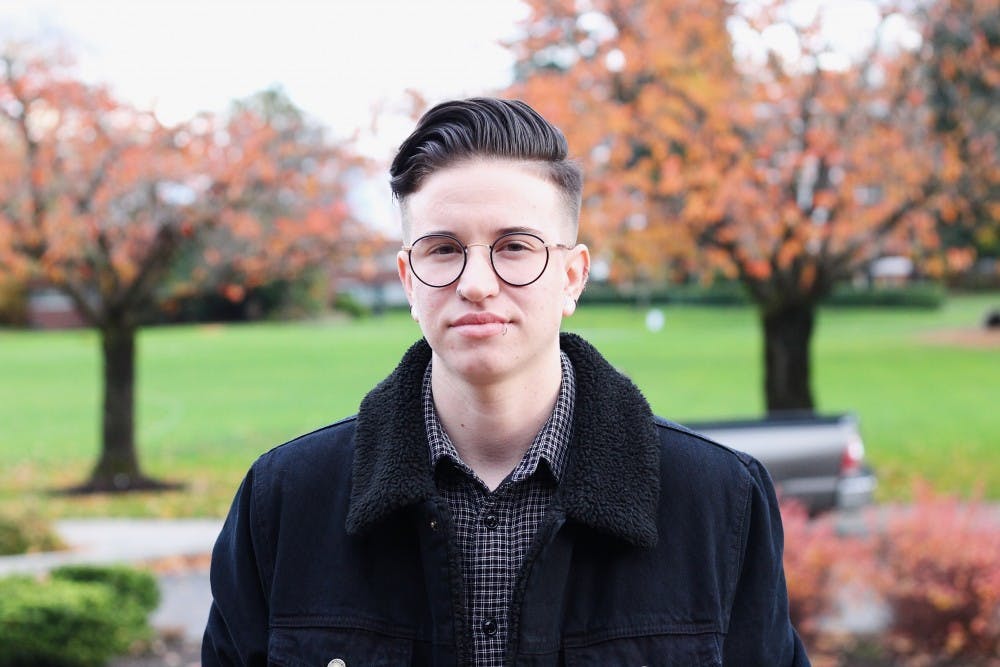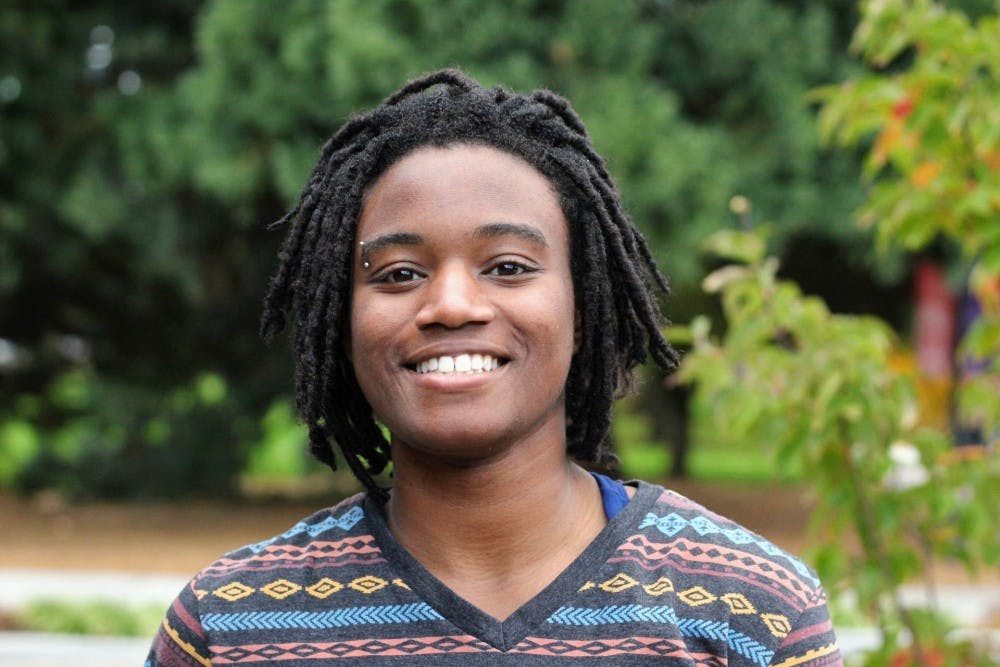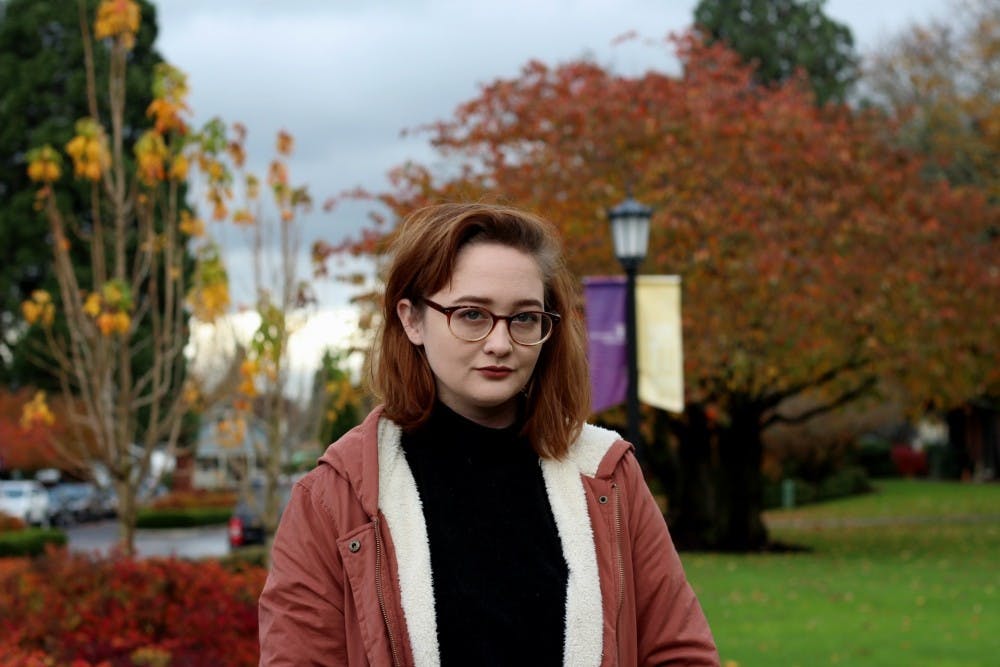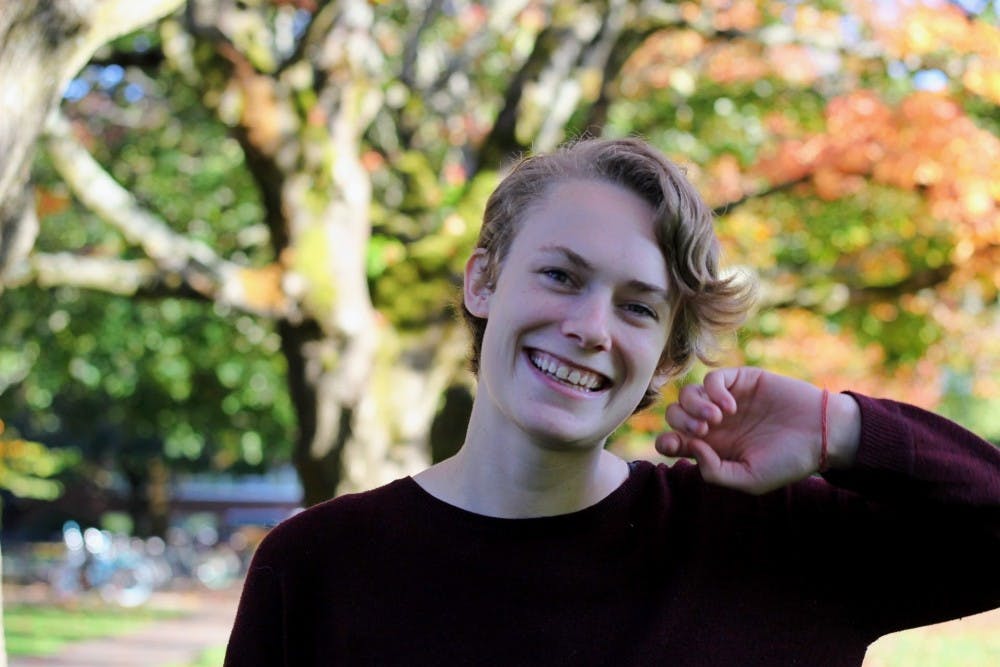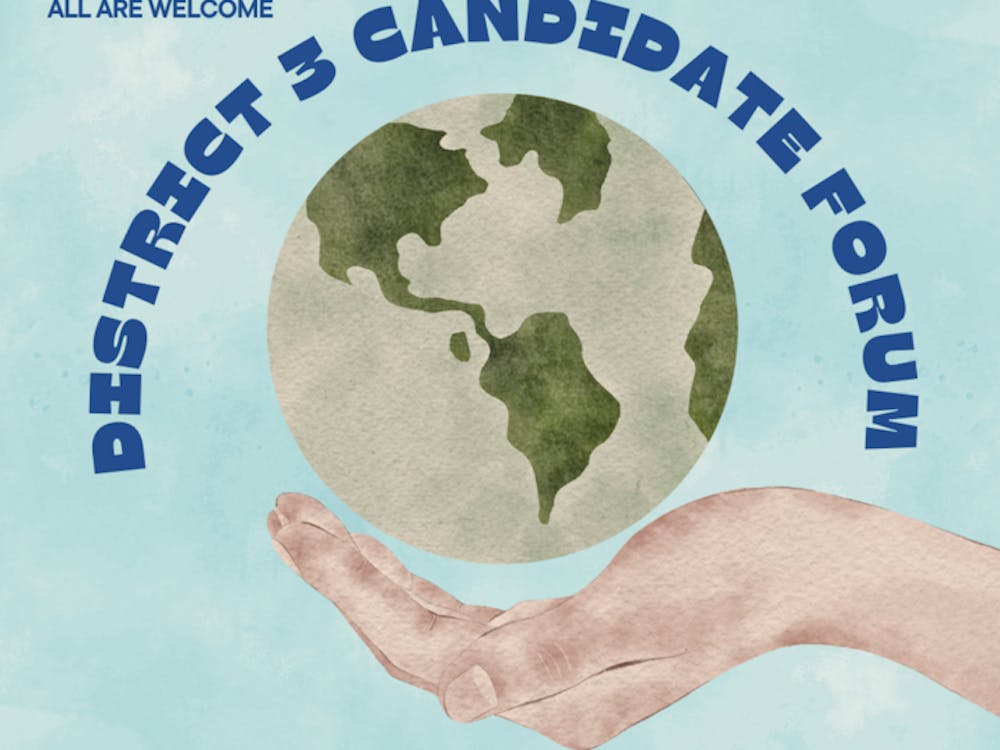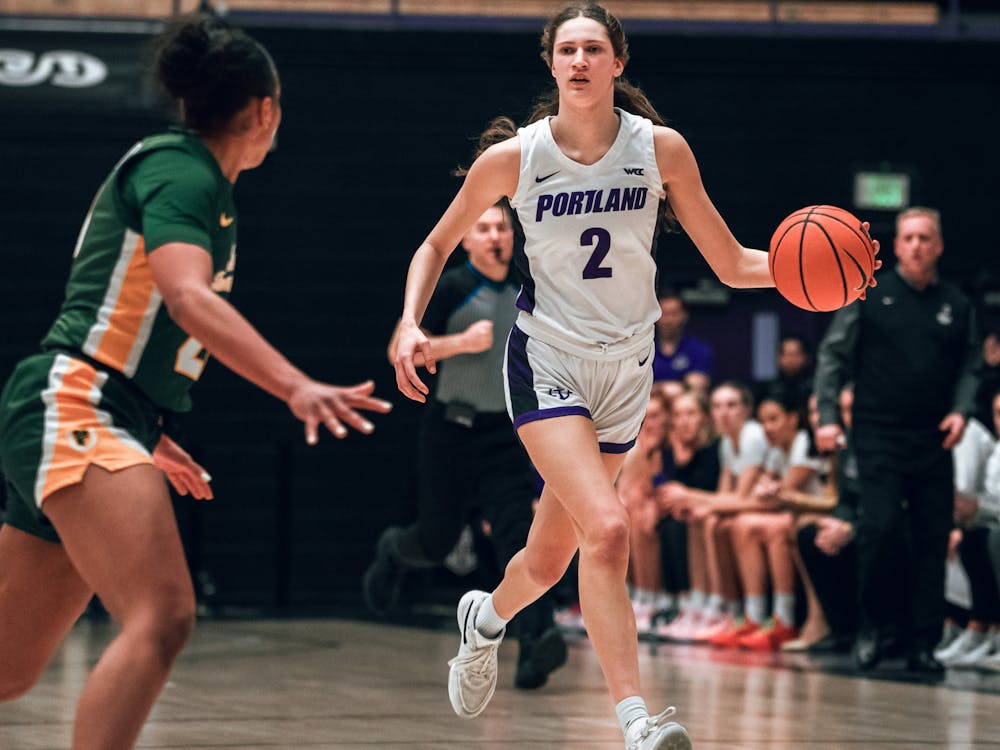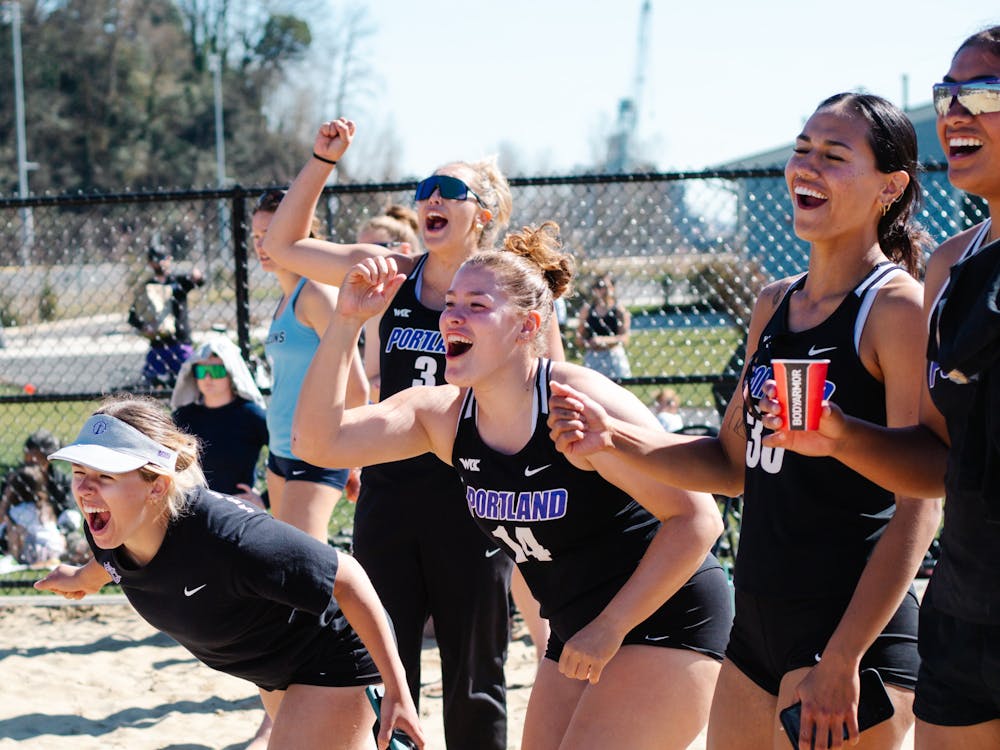Mia Davis, nonbinary person, they/them or she/her
When senior Mia Davis came to Portland as a freshman in college, they were looking for somewhere new to call home. They grew up in Kona, on the Big Island of Hawaii. Though the scenery was a beautiful setting for an avid photographer like Davis, they felt like their town didn’t have much to offer for longing young adults. Davis’ high school had about 100 students.
“It was a very small town and everyone knew each other,” Davis said. “Everyone talked to each other.”
Davis came to Portland because they said they could see themselves staying here after college. Davis loved the anonymity that came from a city like Portland of about 600,000 people, and the new beginning the city granted that their old hometown, with about 12,000 people, didn’t. When Davis came to Portland, they noticed that the way people dressed and presented themselves could be different from anything they had ever seen before. When they came to college, they were still wearing what they thought was the right way to dress for their assigned gender.
“It’s really funny to see pictures of myself as a freshman,” Davis said. “I had incredibly long hair. I wore a lot of makeup and I wore fake eyelashes. I wore blouses and skirts, and I thought that’s how I should be.”
An organizational communication major and fine arts minor, Davis started to get involved in programs like CPB and started the Humans of UP page. Davis’ photography flourished. They made friends that weren’t like the friends they had in high school.
“I spend most of my time with people that are somewhere on some version of a spectrum, whether it’s gender or sexuality,” Davis said. “I would say like 80 percent.”
Davis took some time during the summer before their senior year at UP to think about their gender identity. They had conversations with friends from high school and college and learned more about what it meant to be non-binary.
“I thought to be nonbinary you had to not identify as masculine or feminine, but my friend showed me a video that said, you can be a man or a woman and not identify as binary and be feminine at the same time, and I was like, I think I finally figured it out,” Davis said.
Davis found the most important part of understanding their gender identity was to surround themselves with people who support them.
“(I’ve been) putting more emphasis in my mind on people who want to help versus people who don’t care about you,” Davis said. “It’s helped to surround myself with people who want me to be myself rather than people who want to squash that.”
To be a better ally, Davis hopes it will become more common for UP professors to ask for students’ pronouns on the first day of class.
“More professors every year are getting into the practice of asking people’s pronouns, either on the first day of class or through email before classes start,” Davis said. “It normalizes it not only for non-binary people, but it’s good for even cisgendered people to prompt them to think of asking the same question.”



